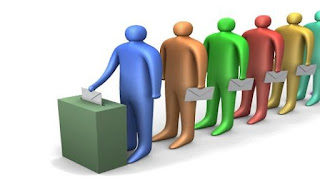International Observers Getting Ready to Watch US Elections Closely
Amid charges from Donald Trump that the U.S. presidential election could be "rigged" and concerns of rights activists that black voters may face undue obstacles, the head of an international observer team pledged a full review ranging from voting machines to racial bias as it began work on Tuesday.
The team from the 57-nation Organization for Security and Cooperation in Europe (OSCE) that will monitor the Nov. 8 presidential and Congressional elections is set to be the biggest the organization has sent to the United States, tasked with checking the vote meets international standards.
Republican candidate Trump's apparent suggestion that the vote might not be free and fair has drawn an angry response from his opponents, who say it is baseless.
Democrat Hillary Clinton has led Trump in national opinion polls in recent months. On Tuesday, an average of polls aggregated by RealClearPolitics website showed her with 48.1 percent of support compared to Trump’s 44.3 percent.
Civil rights advocates have also said voters are more likely to face racial bias at this election than they have in 50 years, because of voting laws that several states passed after the U.S. Supreme Court struck down part of the landmark anti-discrimination 1965 Voting Rights Act three years ago.
Civil rights advocates have also said voters are more likely to face racial bias at this election than they have in 50 years, because of voting laws that several states passed after the U.S. Supreme Court struck down part of the landmark anti-discrimination 1965 Voting Rights Act three years ago.
"We do have concerns about voter registration, voter identification and also electronic voting," the head of the OSCE mission, British lawyer and diplomat Audrey Glover said in a telephone interview, adding that the mission is impartial.
"We always let the facts speak for themselves, so let's see what happens," she said. Allegations such as Trump's, however, were for the U.S. authorities to follow up on while the OSCE observed, she added. "We're not policemen."
The Shelby County v Holder Supreme Court ruling in 2013 struck down a part of the Voting Rights Act that was used to determine which areas with a history of discrimination had to obtain special permission before changing their voting laws.
That has raised concerns among rights groups that laws on issues like voter identification have since been changed to make it more difficult for poor and minority voters to take part.
The OSCE, which comprises much of Europe, Central Asia and North America, has also suggested that all electronic voting machines be required by law to leave a verifiable paper trail, though many states do not provide one.
Glover said her team would seek to clarify where it legally can and cannot go, adding that states' and counties' stance on international observers was often not clear. Texas also threatened OSCE observers with prosecution four years ago, which the organization called "unacceptable" at the time.
Glover, however, struck a conciliatory tone.
"If the law says international observers are not allowed, then obviously we won't try and go. We're not going to try and make any sort of a scene," she told Reuters.
But the biggest hindrance might be self-inflicted. The OSCE had hoped to deploy 100 so-called long-term observers in the coming week, but OSCE states - including Germany, France, Spain, Romania, Finland, Bosnia - have only provided 26.
Up to 400 short-term observers will begin work close to Election Day.
"We'll do what we can with what we've got," Glover said. “We will try and make a silk purse out of a pig's ear and we will try and cover the whole of the United States, or to the extent that is feasible."


Comments